Camp Fire Survivors: In Their Own Words
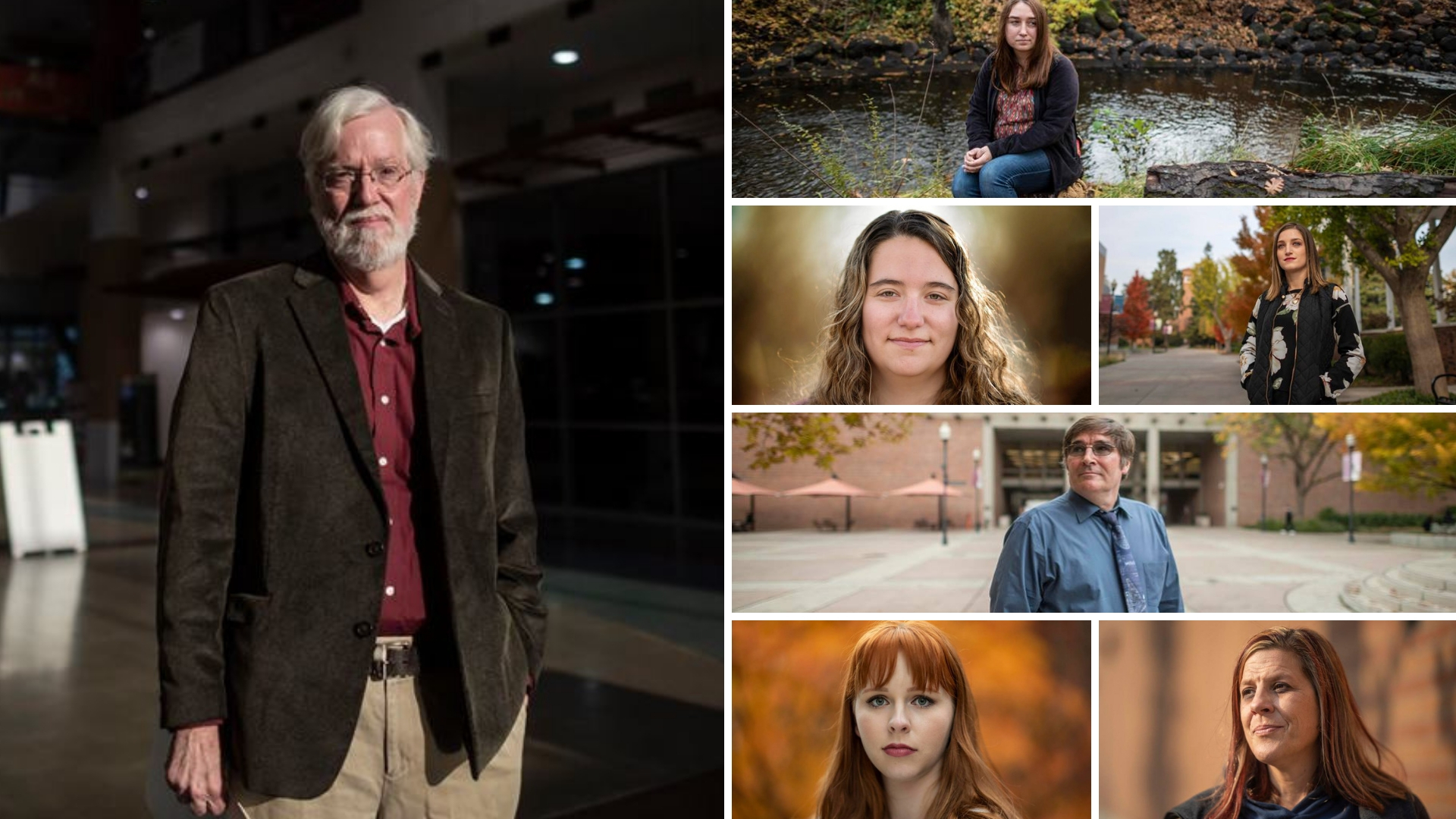
The Camp Fire erupted on November 8 and tore through Butte County to become the deadliest and most destructive wildfire in state history. Displacing more than 50,000 residents, many from Chico’s neighboring town of Paradise, the fire did most of its damage in just 16 hours.
But its victims will feel its effects for much longer, and the Chico State community is no exception. More than 310 students, faculty, and staff confirmed the loss of their homes to the blaze, which claimed at least 85 lives. Those who survived now face incredible challenges: finding new housing, replacing belongings both practical and precious, and coping with the memories of a narrow, harrowing escape.
#WeAreChico is Chico State’s visual storytelling platform, designed to share the voices of our campus community in a space where they can be heard. These seven Camp Fire survivors each opened up to us about their lives since the fire broke out. Here are their accounts, in their own words.
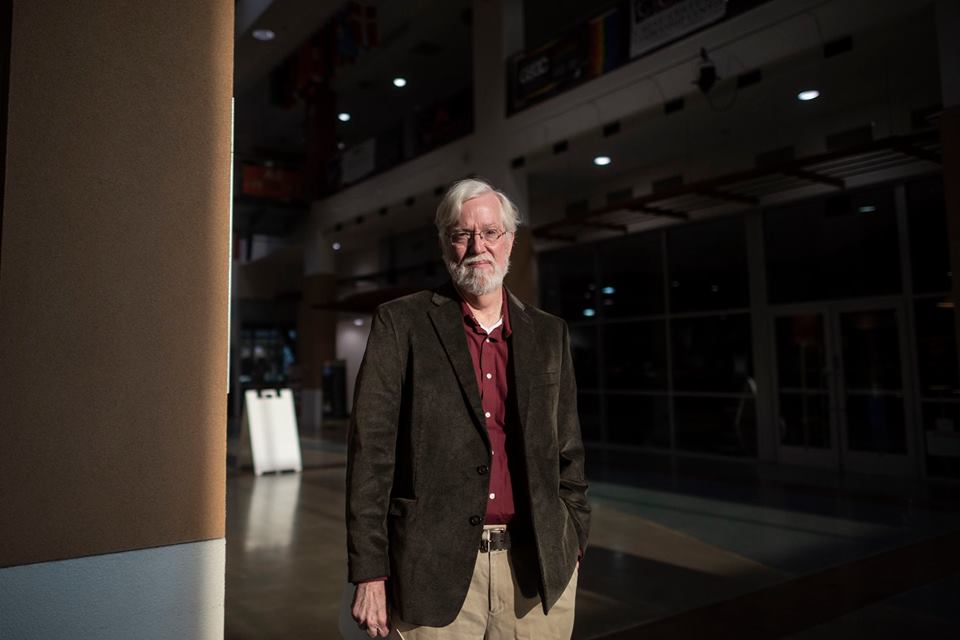
Tony Dunn
Lecturer, Business Information Systems, and project manager, IT Client Services; 16-year Paradise resident
“They sent us down Neal Road. My thought was, ‘No, this is a big mistake.’ Narrow road, trees on both sides. We were moving, 20 mph, but then somebody hit an emergency vehicle a quarter mile in front of us, and immediately, traffic stopped. And that’s when the fire started to come up the canyon, and the trees started to catch on fire. …
We did not move an inch. Not an inch. We just sat there. I watched this house, just 50 feet away, get totally engulfed. I’m on the phone with my wife and telling her, ‘I don’t think we’re gonna make it. We’re stuck here and there’s nowhere to go.’ There’s a car on my left side, cars in front of me, cars in back, and fire on my right side. Finally, these teenagers came up the road, I don’t know who they were, and they were saying, ‘Everybody on the right side of the road.’ Everybody got over, and we started moving. About 10 minutes later, we’d gotten out of the trees. Once we were out of the trees, I thought, ‘OK, I think we’re going to survive.’
We still held out hope, ‘Maybe the house is still there,’ but that’s the denial part. On Friday, we got confirmation, got the pictures. Everything—that whole canyon—is gone. … People are saying, ‘Oh, we’ll go back and go through the ashes.’ What’s to go through? Haven’t you seen the pictures? It’s just ash and twisted metal. There’s nothing to save. We need to accept that it’s time to move on.”
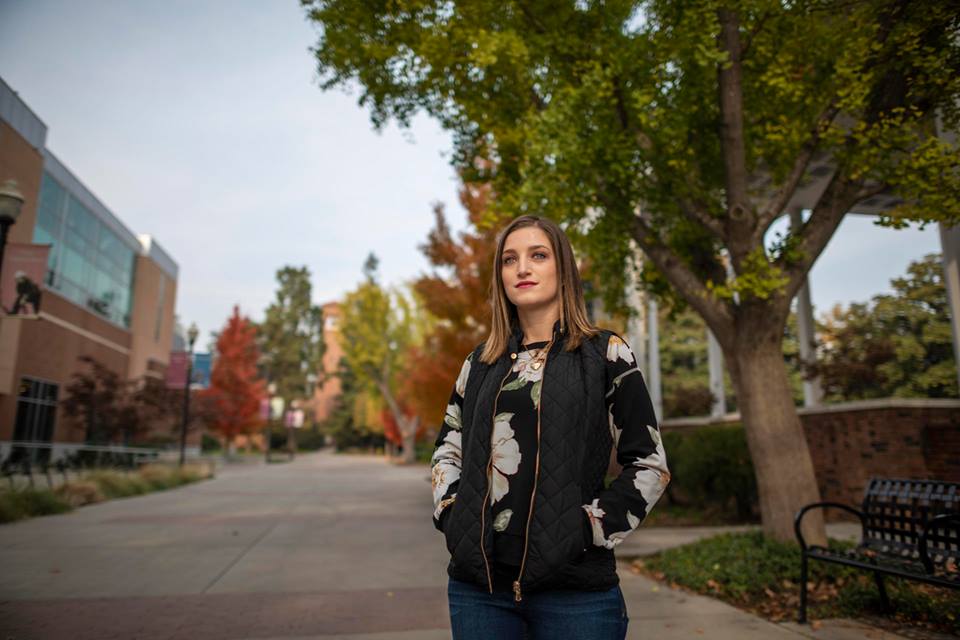
Sophia Sir
Senior, business administration; Paradise resident
“It has been an emotional situation. It’s such a strange feeling, not being able to go home. I’ve gone up as far as the National Guard would let me, just to see if I can get to my home, and I still can’t. It’s surreal being up there. It’s like going to a place you’ve never been before, but somehow that place is still your home. It’s such a déjà vu feeling.
I’m very thankful everyone out there is trying to help us. I know the University is actually doing its best to help me, and I’m really grateful for that because I really don’t know where I’m going to go, or how I’m going to finish the semester. The fact that Chico State, the University Police, even President Gayle, they’re all working as hard as they are, that really means a lot. They’re genuinely trying to make a difference.”
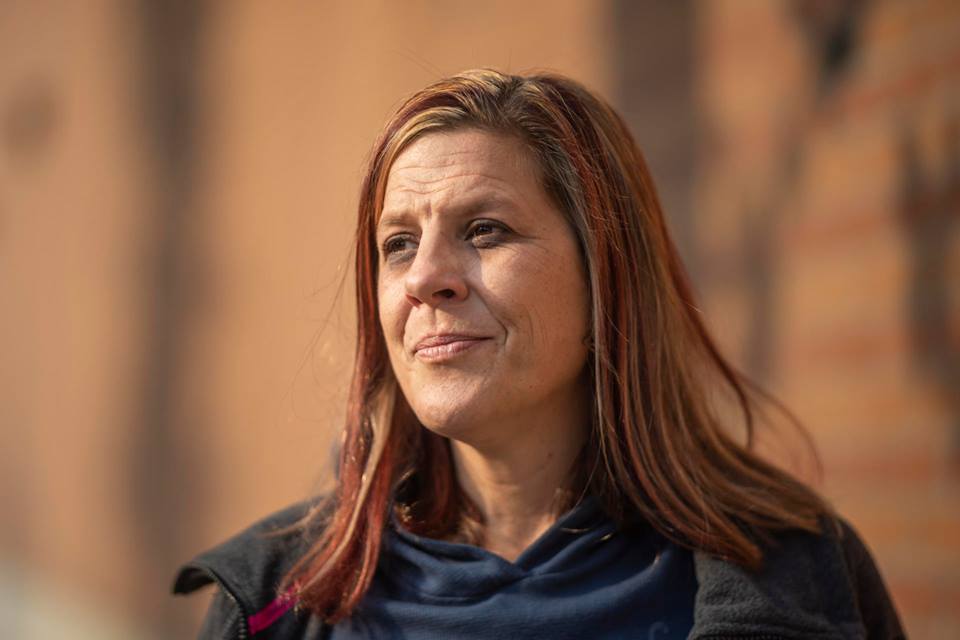
Megan Rawie
Administrative support coordinator, Concrete Industry Management
“The sky went pitch black, there was nobody around, and everybody was gone. That’s when I ran in, grabbed the cats, threw them in their carriers, and went back in to grab my dog. I ran out, got in the car, and then left and got in traffic with everyone else.
When I was leaving town at Neal Road, there were flames on the bike path all around me, and as soon as I got a little further, everything was in flames.
Once I had reception, I called my mom, was telling her everything, and told her, ‘We’re not going to have a home to go home to.’ Thinking back now, it’s a blur, but I remember hearing myself say those words.
A neighbor texted me that night, and he’d just gotten out at the last minute, when everything was in flames. I lost it. I knew, that’s it. When our neighbors were texting us all, when we realized it was all ash, my heart knew.
Saturday night, we got a video, and it was more awful than I imagined it could be, but it was closure. Now I have to move forward. I have to remind myself that I’m one of the fortunate ones. I got myself out, I got my fur babies. We’re safe and alive. Everything else is material.”
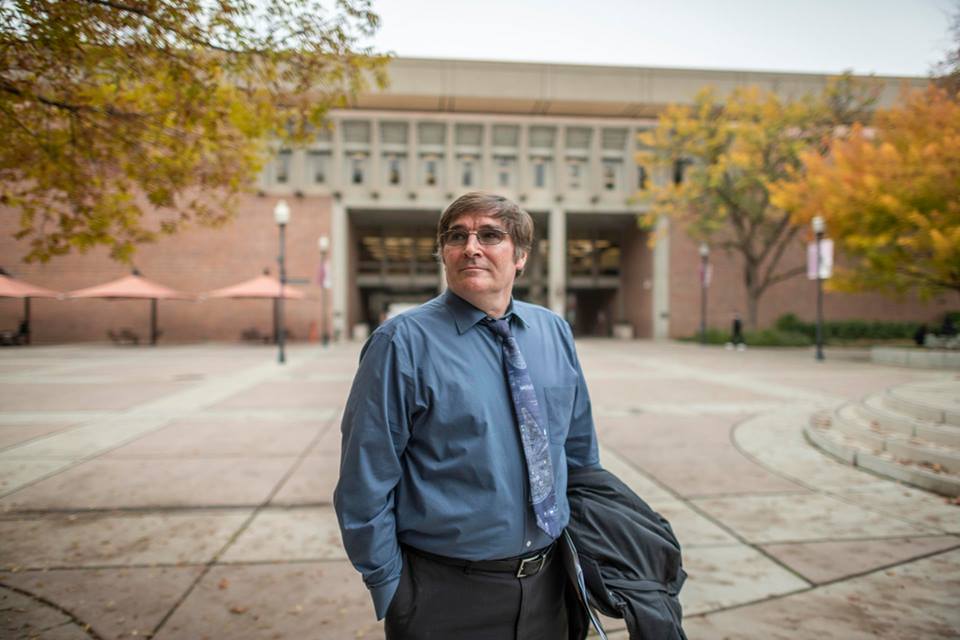
John Crosby
Professor, Political Science; Model United Nations faculty advisor; 14-year Magalia resident
“We’re luckier than I’d say 95 percent of everyone else. We’re alive and we have each other. We just lost stuff. But thinking of what we’ve lost, we’re dual by nature—we’re emotional and intellectual. I tend to lean toward the Toy Story kind of deal, where these inanimate objects have lives of their own. I’ve imbued these things I’ve collected over the years with personality. It’s almost like a loss of life because I’ve given them characteristics over the years. These ties I’ve been wearing for 10 years as a lecturer, they all have stories, conversations they’ve started, and they’re all gone.
“These losses, I know it’s meaningless, but there’s no way of getting that back. It’s a purging by fire. I’ll never have those things again. It’ll never be normal again.
“The rebuilding aspect is, even if you rebuilt the same house, it would be a constant reminder of the furniture, or the items, or things we had, like my Dungeon and Dragons pieces, our Christmas ornaments, or my wife’s plates she’d collected. It’s a bunch of crap, but it’s our crap. We’d go, ‘That’s where that was.’ It’d be a constant reminder of the pain. I don’t think we want to rebuild there. But now we have to figure out what we’re going to do. Where do we go from here?”
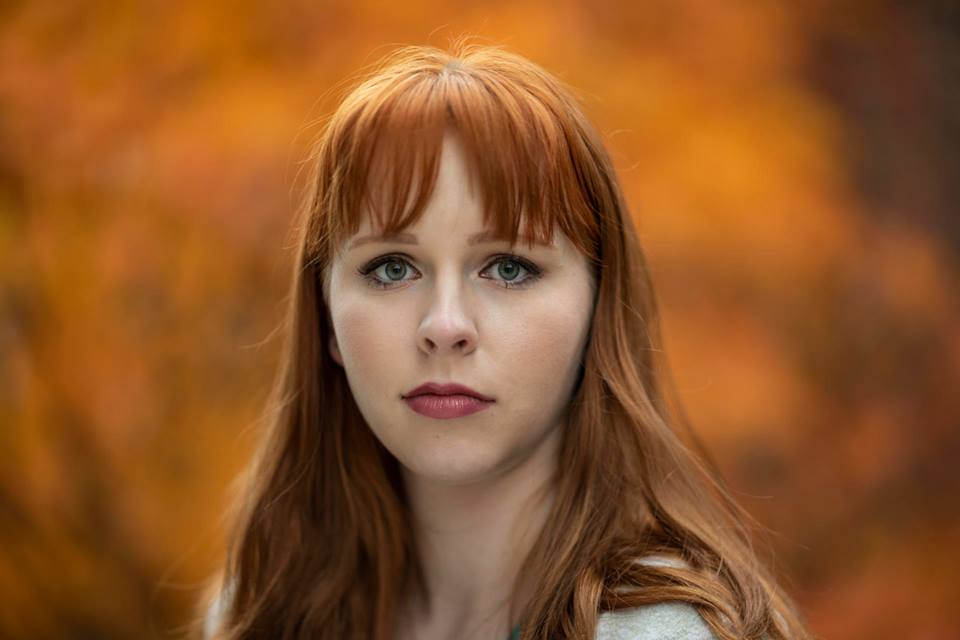
Stephanie Rogers
Senior, music education; 1-year Magalia resident
“I woke up when the fire initially started, and I was just thinking I had to get to class because traffic would be bad. We have fires all the time, so I didn’t think much of it. But then, I saw Sawmill Peak was on fire, and they were shutting down Skyway and redirecting people.
“My brain shut down, just automatically. All I was thinking was, I had to get home, get my 76-year-old grandma, get my pets, and get out. We took Centerville Road all the way down to Chico, and it’s scary to think that it all burned, right behind us, within hours. Everything we’d passed through was all gone. It feels surreal, like something that happens in a movie. Coming up 99 through Chico, I saw how close it was to the freeway, and I just lost it.
“I started crying again at the gas station by the mall, seeing all the tents and food trucks set up. I didn’t lose my house, but I definitely lost my mind. It’s just been hard transitioning—it feels like even though we’re at the end of the semester, we’re back at square one.
“Being able to stay in University Housing has been such a blessing. My grandma’s been with an aunt in Rocklin. Being able to have more stable housing, having meals at Sutter Hall, getting back to some kind of routine, has been really welcome. … I felt like I was just kind of floating along with everything that happened.”
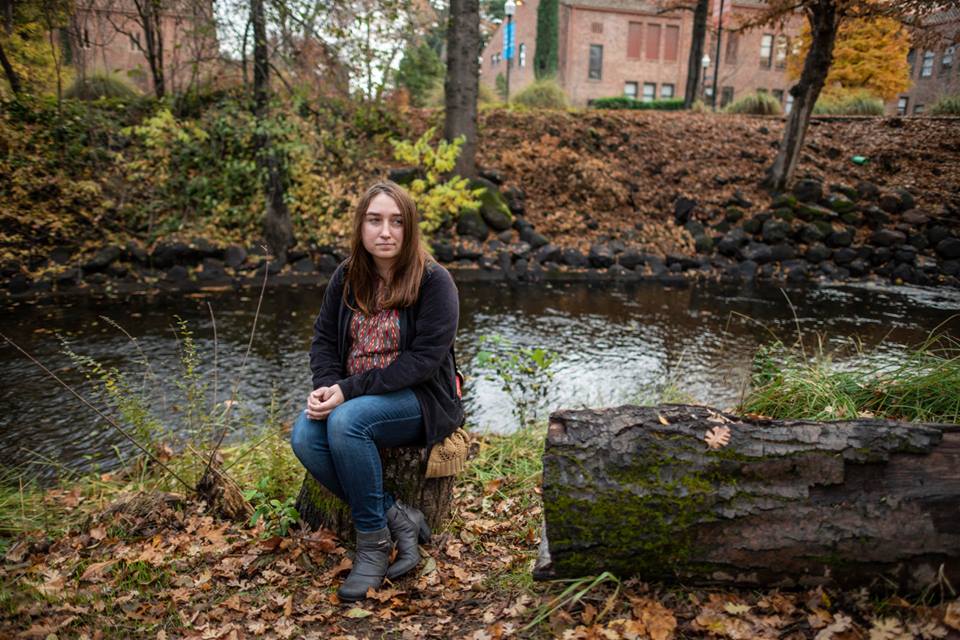
Shirley McCoy
Junior, business; 3-year Paradise resident
“It’s been hard to totally focus on class like I’m used to doing. My mind is on a million other different things, still not having any real stability. They did put me in University Village temporarily and that’s helped out a little bit, but you don’t know how long that’ll be for. I’ve never had to live with people—I’ve always just lived with my parents. It’s been strange trying to get used to that.
“They’ve all been friendly and real welcoming, and they make me feel accepted there. They’ve all been very nice. It’s not too bad. Mostly, I’m glad I at least have a roof over my head and a warm bed to sleep in. I feel it for those people sleeping in tents, because it’s cold out there.
“I try to be strong in front of my parents and not really show too much. I have good and bad days, but when you watch the news, and see that it’s such a big thing, it feels so surreal. It’s a disconnect. I know I was there, but it feels like it was such a big thing that you almost feel like you weren’t part of it.”
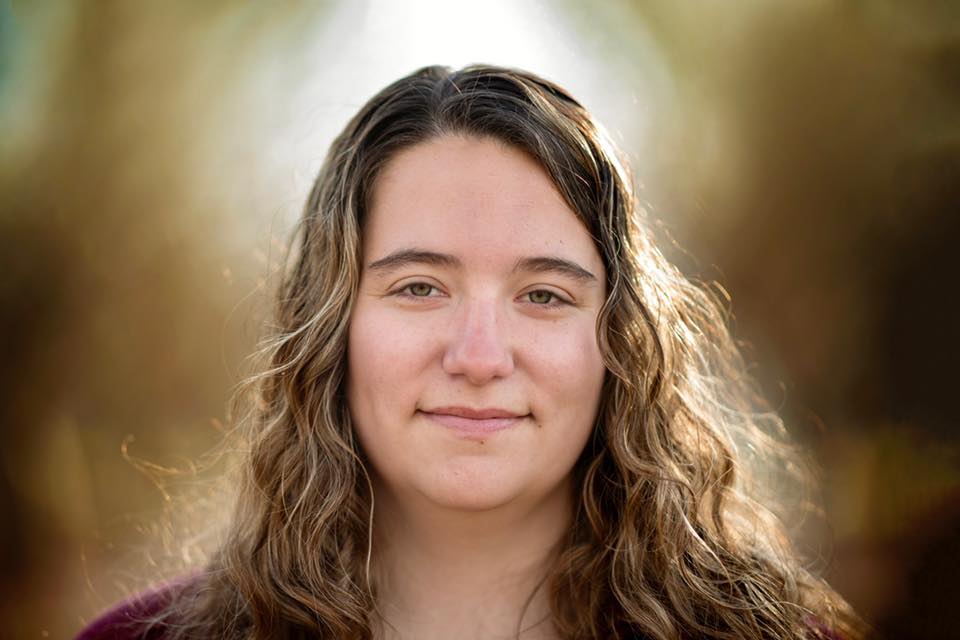
Danielle Hansen
Senior, agricultural business; 23-year Paradise resident
“It’s hard knowing I left my house that day going to school, and I’ll never get to go home to that. It’s quite an adjustment, but everyone in Chico has been surrounding us and giving us the love and support we need. It’s not easy and it’s going to take time, but with everyone’s support, we’ll make it through it.
“The biggest challenge right now is finals, and finishing, and just making sure I don’t give up right now, when all I want to do is stop and have a moment to myself. I have to keep pushing forward.”


